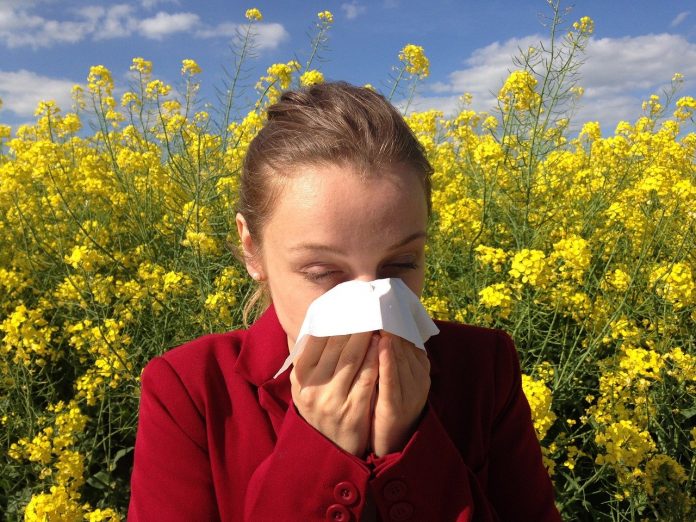
For someone with a food or drug allergy, the risk of life-threatening anaphylactic shock lurks around every corner.
In a new study, researchers found there might be a pill that can be taken proactively to prevent mild to life-threatening anaphylaxis, no matter the cause.
The research was conducted by a team at Northwestern Medicine.
Anaphylaxis is a severe, potentially life-threatening systemic allergic reaction that can occur within seconds or minutes of exposure to an allergen.
It occurs in about one in 50 Americans, though many believe the rate is higher (closer to one in 20), according to the Asthma and Allergy Foundation of America.
If a person’s blood pressure drops so low during anaphylaxis or their airway closes up enough that they can’t get enough oxygen to their organs, they enter anaphylactic shock.
The drugs used in the study are known as BTK inhibitors. BTK stands for an enzyme called Bruton’s tyrosine kinase, which is found inside cells, including mast cells.
The reason BTK inhibitors work to block allergic reactions is that by inhibiting, or blocking, the BTK enzyme, the mast cells cannot be triggered by allergens and allergic antibody to release histamine and other allergic mediators.
The study used three different BTK inhibitors, which blocked allergic reactions when tested on human mast cells in a test tube.
Additionally, the study used one U.S. FDA-approved oral drug, which successfully reduced or prevented allergic reactions, including severe, life-threatening anaphylactic reactions, in a new “humanized” mouse model of anaphylaxis.
The mouse’s organs contained transplanted human cells that, over several months, matured into human mast cells, the primary cells that react during allergic reactions.
This would be the first known treatment to prevent anaphylaxis other than avoiding the allergen.
The findings could pave the way for future human clinical trials of such oral drugs to be used as a preventive treatment to avoid serious allergic reactions.
BTK inhibitors are currently on the market for approximately $500 per day as a successful and less-toxic alternative to chemotherapy for patients with blood cancers like chronic lymphocytic leukemia and mantle cell lymphoma.
They are not yet approved for use in children, who are more likely to have food allergies.
The lead author of the study is Dr. Bruce Bochner, the Samuel M. Feinberg Professor of Medicine at Northwestern University Feinberg School of Medicine.
The study is published in the Journal of Clinical Investigation.
Copyright © 2020 Knowridge Science Report. All rights reserved.



